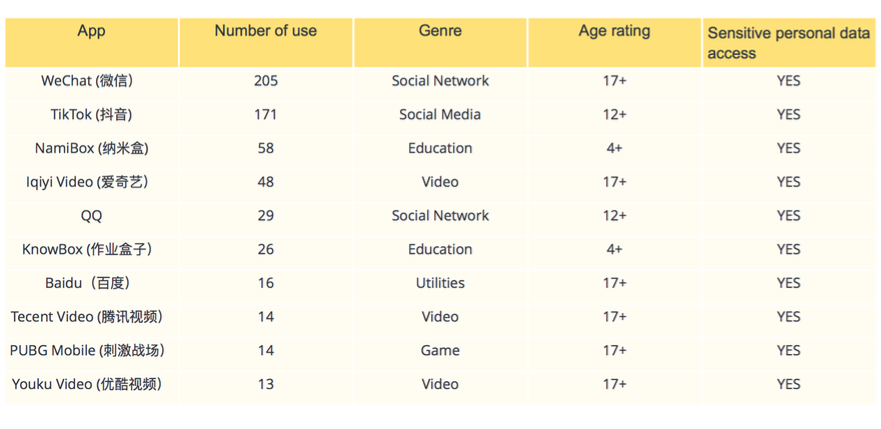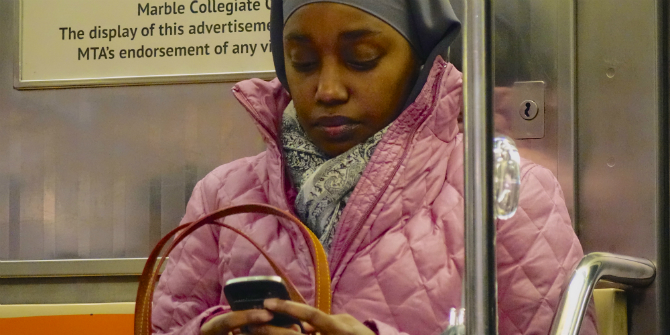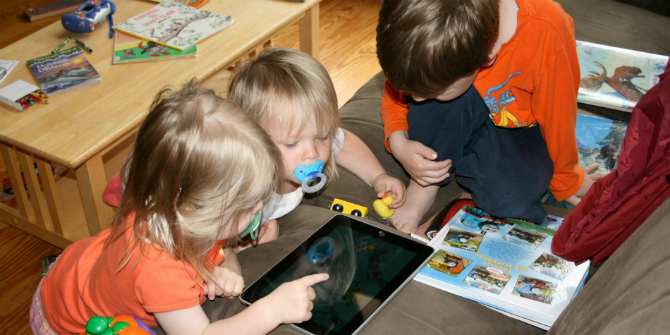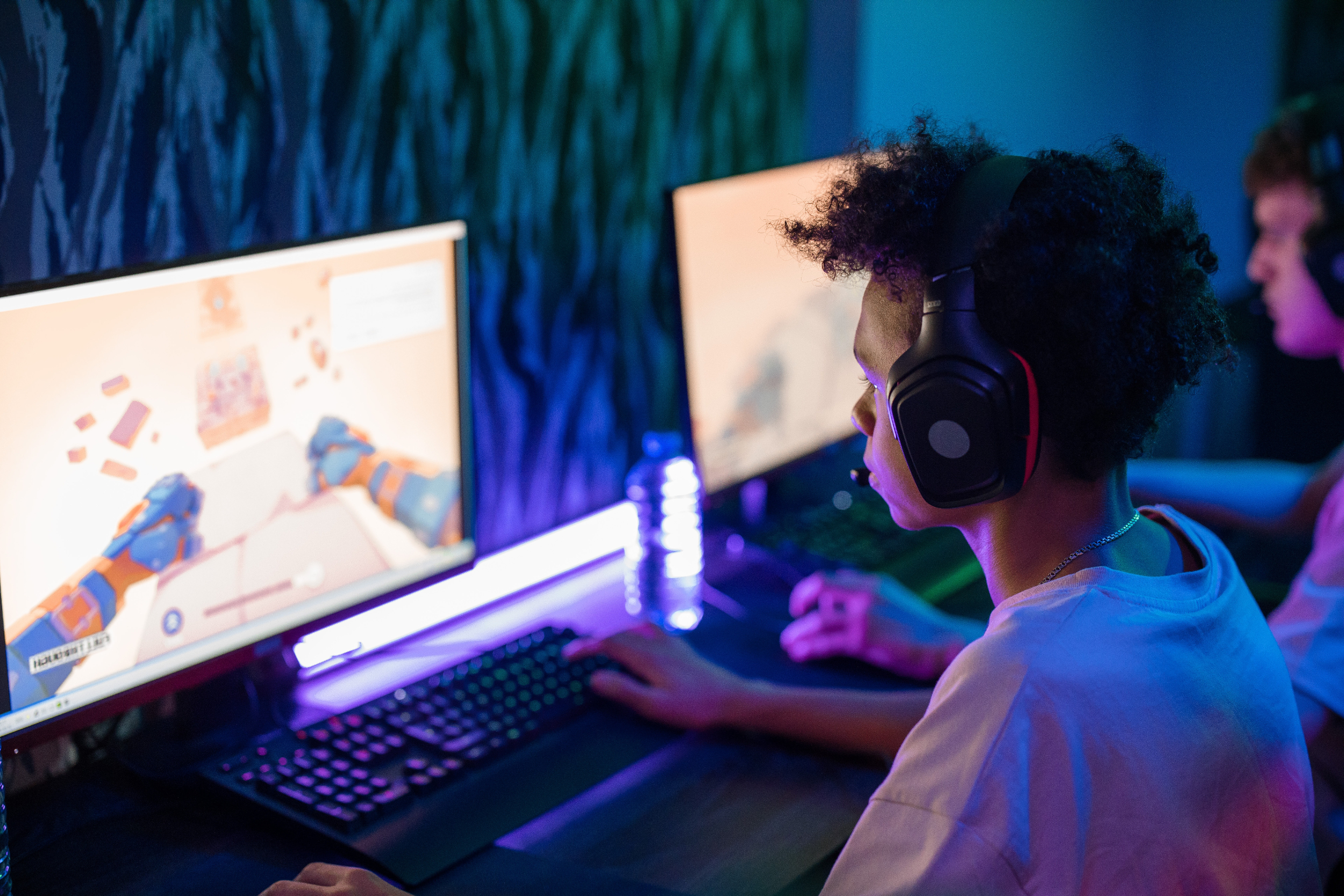 How shall we better protect children online? And what do Chinese parents think about their children’s online safety? To answer these questions, a new report presented findings from an online survey of 593 Chinese parents with children aged 6-10. While Chinese parents showed some level of privacy concerns, their primary concerns were still around inappropriate content and screen time. Online short-video platforms (e.g. TikTok) played an important role in Chinese young children’s daily life, however, many of these apps are not always age-appropriate. [Header image credit: B.Tsang-CC-BY-NC-ND-2.0.jpg]
How shall we better protect children online? And what do Chinese parents think about their children’s online safety? To answer these questions, a new report presented findings from an online survey of 593 Chinese parents with children aged 6-10. While Chinese parents showed some level of privacy concerns, their primary concerns were still around inappropriate content and screen time. Online short-video platforms (e.g. TikTok) played an important role in Chinese young children’s daily life, however, many of these apps are not always age-appropriate. [Header image credit: B.Tsang-CC-BY-NC-ND-2.0.jpg]
As the generation growing up at the frontier of the Internet of Things, children’s daily activities are constantly shifting from ’offline’ to ’online’. Both the amount of information, and the value of it has been continuously increasing, and the risk of children’s privacy being compromised or improperly exploited is growing. China is now home to 169 million internet users under the age of 18, with 89.5% of children under-13 reported to have access to the internet. While mobile phones are still the main device teens use to go online (92%), tablets (37.4%) and smart TVs (46.7%) are among the devices most frequently used, and they have been used more by teenagers than other age groups [1]. Alongside this there have been growing concerns over the risks that they face online. For those under 18, 30.3% have had exposure to inappropriate content and 15.6% have experienced online bullying. [2] However, these privacy-related risks have not been looked at or discussed. A new report however presented findings from an online survey of 593 Chinese parents of children aged 6-10, which focused on understanding Chinese parents’ awareness and management of their children’s online privacy risks.
Key findings of the report:
- Digital devices were widely adopted in Chinese families. Parents showed some privacy concerns in general; however, their primary concerns were still about the content their children might have access to and screen time control, rather than what personal information might be collected about their children.
- Parents’ concerns are often influenced by their own digital experiences. Parents with more digital experience expressed a higher level of concern about their children’s privacy online.
- Online short-video platforms (e.g. TikTok) played an important role in Chinese young children’s daily life. However, many of these apps are not always appropriate for children’s age. Online learning was reported to be another major reason for children being online. We found that schools and teachers played an important role in children’s choice of apps, and this is different from UK children.
- Most parents used a range of means to safeguard their children online, however mostly through restrictive approaches. Only a small proportion of them reported (26.6%) regularly discussing privacy issues with their children and very few of them (10%) had sufficient awareness of the potential privacy risks of their children’s daily online activities. This shows that parents would benefit from more support and resources to help them safeguard their children online.
Children’s most-used apps are not always appropriate for their age
In the survey 49.7% of parents said that the main purpose of their child’s online access was online learning. Very few reported that their child’s main purpose was using social media platforms (4.2%) or social networking/online chatting platforms (2.1%). However, these statements were different from what was observed in the survey – see Figure 1 Top 10 Apps used most frequently by Chinese children.

Eight out of 10 top apps used by Chinese children had an age rating inappropriate [3] for young children aged 6-10, and our review showed that all apps required access to sensitive personal data, such as contact details on the device, location information or unique identification of the device.
Overall, in comparison to UK children, Chinese children spend more time on social media platforms and online videos than games. This may be related to the wide adoption of social media among Chinese Internet users and how WeChat is becoming a multipurpose platform for communication as well as entertainment and digital payment.
Parents adopted a range of means to safeguard their children online, however mostly through restrictive approaches
Parents were asked to report their current practices when safeguarding their children online. While 59% of them said they used restrictive approaches, such as controlling children’s screen time, monitoring their online activities and restricting the websites they could have access to, only 26.6% of parents said they had been discussing online privacy issues with their children.
In comparison to UK parents, Chinese parents in our survey showed more of a tendency towards direct intervention. This links back to our findings that Chinese parents in the survey were much more likely to uninstall their children’s apps than UK parents, which may be related to the authoritarian parenting style more often observed in Chinese families.
Key suggestions
Parents’ concerns about content appropriateness and age restrictions have not always led to a consistent choice of apps for children. This indicates a need to better understand why this is happening, how we may provide better support for the parents, and how shall we honour the digital rights of children. At the same time, we also found that authoritarian parenting style was more often found in Chinese families. Parents have good knowledge and have applied a range of different means to safeguard their children online, however, these are typically restrictive approaches and parents struggled to discuss these issues with their children. This was partly because they need help on strengthening their technical competence, and they need to be better informed on how their choices and decisions would impact on their children’s online privacy safety.
Based on these findings, we recommend:
- Raising the general awareness of online privacy risks for both parents and children, and facilitating these discussions with young children.
- Encouraging parents to discuss online safety issues with their children, which provides the necessary scaffolding process for children’s learning. This would require resource development that help parents improve their digital skills and digital confidence.
- Tool and resource developments that focus on facilitating skill and knowledge building for both parents and their young children that enables parents to learn more about their children’s online activities, and encouraging an active co-learning.
Notes
Access the full report and detailed findings here.
[1] The statistic report of the online activities of Chinese teenagers 2018.
[2] The Statistical Report on Internet Development in China 2018.
This article represents the views of the author, and not the position of the Parenting for a Digital Future blog, nor of the London School of Economics and Political Science.





